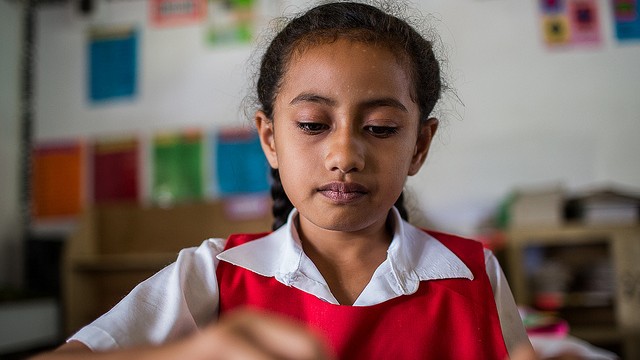 Story: Katrina Schwartz
Story: Katrina Schwartz
Photo: DFAT Photo Library
Helping every student experience meaningful, deep learning is a constant challenge, in no small part because no two learners are alike. To reach students who are particularly challenged — whether because of their ability to speak English or some other reason — educators can find a way in by tapping into students’ interests and passion.
“You don’t have to know how to read and write to think deeply,” said Claire Sylvan, founding executive director of The Internationals Network For Public Schools, schools that serve high school students who have been in the country fewer than four years. Sylvan spoke on a Deeper Learning MOOC panel focused on strategies for helping even the most challenged learners to engage in meaningful work.
Every student at an Internationals school is an English Language Learner, but not all have a common mother tongue. Internationals schools give students projects that involve complex thinking in both English and native languages. “Provide them with on-ramps that allow them to develop literacy in the environment that they now inhabit,” Sylvan said. There’s often a myth that students need to learn English before they can participate in more interesting work, but the Internationals Network has built an entire model on engaging students in learning through work that interests them, giving them a compelling reason to learn English.
